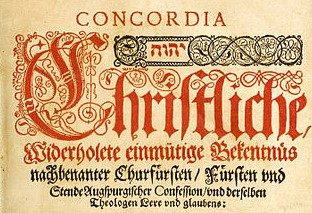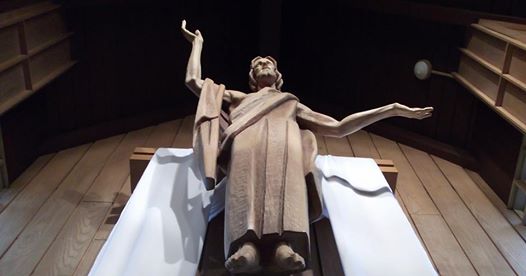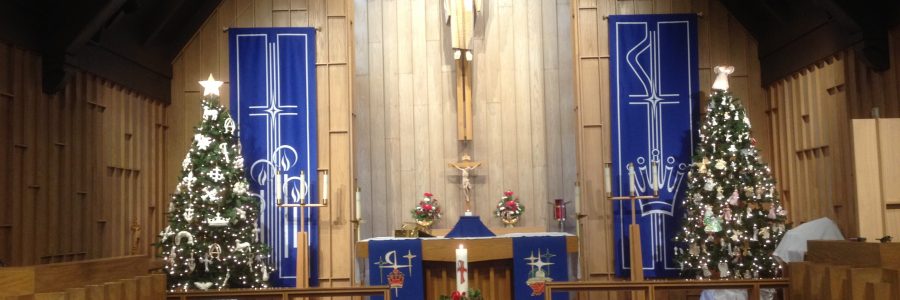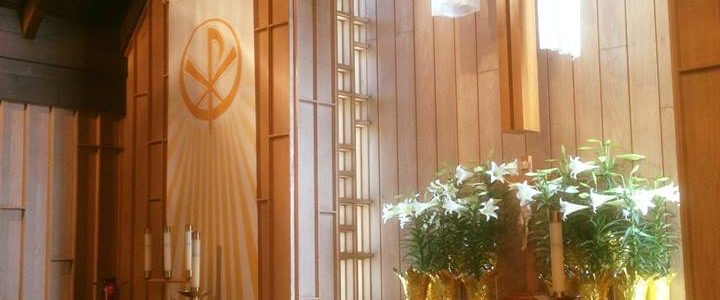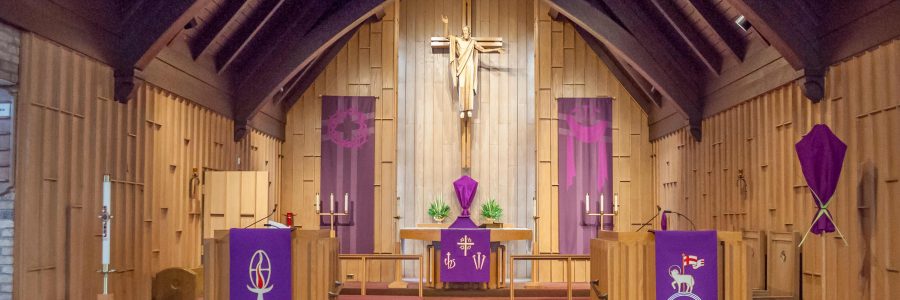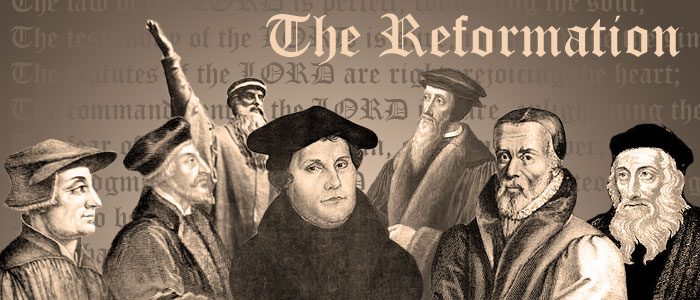February 2020
Dear Friends in Christ:
This month we return to our series on the documents that make up our Lutheran Confessions, as they are contained in the Book of Concord. Many Lutherans have come to believe that Dr. Luther’s Large Catechism was written only for pastors; but this is not true. Dr. Luther begins his short preface to The Large Catechism by writing, “This sermon is designed and undertaken to be an instruction for children and the simple folk.” The Large Catechism is a result of Luther condensing his sermons (on the Ten Commandments, Creed, The Lord’s Prayer, and The Sacraments) that he had preached over the course of a few years and collecting them together into one concise work. His goal in the Catechisms was the same as his goal with those sermons: to instruct and encourage clergy and laity, young and old alike, in the basics of the Christian faith. But the printing and distribution of both Catechisms allowed these important teachings to spread to a far wider audience.
Dr. Luther wrote both the Small and the Large Catechisms with the assumption that they would be “house books” and used regularly in the household for the benefit of all in their growth and knowledge of the fundamental teachings of Holy Scripture.
While the Evangelical Lutheran Church (meaning those churches whose confession of faith is The Book of Concord, which can include the LCMS and other Lutheran denominations) has never required a grasp of The Large Catechism for admission to communicant membership (but only the much easier to learn and memorize Small Catechism, as Luther himself advises), The Large Catechism is still an important resource which every Christian would do well to study and take to heart. It covers the very same aspects of the Christian faith as The Small Catechism, but it does so in far greater depth. While households can successfully memorize The Small Catechism they can also make use of The Large Catechism for more in depth teaching as they grow together in the faith.
Dr. Martin Luther wrote both Catechisms in reaction to the dreadful state of Biblical knowledge in which he and other reformers found the people of God in Germany; both clergy and laity. To appreciate the gravity of the situation he discovered:
Imagine if your pastor couldn’t even recite the Ten Commandments!
Imagine if your church service did not include any sermon, except perhaps on special occasions!
Imagine if, even when a sermon was to be given, your pastor did not know or understand how or what to preach!
Imagine the truths of Scripture being taught neither in the Church, nor at home (since even fathers and mothers were not instructed in the faith)!
This was the state of things in the 1520’s in Germany. With the dawn of the Reformation and the churches in Saxony and other German nations turning evangelical (back to the Gospel), one would have expected an immediate surge in growth in the knowledge of Scripture, but the problem was twofold. One problem was that Bibles printed in the local language were still not widely distributed; but another problem, was that clergy and laity alike were failing to see the study of the teachings of Scripture, and the reception of Christ’s mercy in the Liturgy and Sacraments, as important and beneficial gifts of God.
When the Reformation freed the people from the abuses of the medieval Roman Catholic Church, very often, the uneducated people simply thought themselves likewise free from all the rites, ceremonies, and teachings of the Holy Christian Church as well. Cut loose from both the papacy and the ceremonies of the Church, there was nothing to anchor the people to anything. While they had been set free from the abuses of Rome’s false teachings, there remained a critical need to be anchored to the true teachings of Christ, His Church, and His Word.
A series of visitations to parishes all over Germany was the first step in the effort to restore proper Christian teaching, as well as proper Christian rites and ceremonies, which had been either twisted or lost, so that people could both receive and appreciate the Gifts of Christ. Not just Dr. Luther, but many clergy, princes, city officials, and theologians participated in these visitations.
It was as a direct result of these visits that Dr. Luther ultimately wrote the Large (and then the Small) Catechism. As churches were made aware of their spiritual emptiness and the divine nourishment available to them in the Scriptures, and the ceremonies of the Church drawn from them, a great hunger developed among the people. So hungry for these truths were both the clergy and the laity that The Large Catechism went into its third edition less than a year after the first edition was printed and distributed.
Both the Large and Small Catechisms quickly became standards of Lutheran orthodoxy. Already in the 1530s, church orders (rules handed down by the local leaders) required that instruction be according to Dr. Luther’s Catechisms. In some parishes it was not unusual for portions of The Large Catechism to be read as the sermon for the day.
While the concept of a catechism wasn’t unique, Martin Luther’s approach to writing his was a pioneering achievement. He arranged the Chief Parts differently than any had done in the past. He began with the Ten Commandments, followed by the Apostles’ Creed, Lord’s Prayer, the Sacraments, and Confession. Thus, one can see what God requires (the Commandments) and just how high and out of reach His requirements are. Next, we find how God meets our needs through a meditation upon His Triune nature (the Creed). Then, we learn in the Lord’s Prayer how we can approach God now that He has brought us near to Him. Finally we learn how God comes to us as we struggle in our saint-sinner lives—the means of grace proclaimed in the Gospel and given in the sacraments.
In both of Martin Luther’s Catechisms, we have powerful tools. They were written in war-time (a fight for the Gospel against the legalistic and human-centered papacy). And today we are still “at war,” as we are the Church Militant (a spiritual fight against the devil, the world, and our sinful flesh). The Catechisms arm us for this battle as they give us both the Law and the Gospel, proclaiming Christ’s promises to and for us. Conveying the Word of God as they do, they are relevant to strengthen our faith in weakness as they point us to the mighty work our Savior has done and is doing now through His Holy Spirit, in overcoming all that stands against us.
We are at war, but Christ is the one fighting the good fight for us, and He is already victorious. Come soon, Lord Jesus, and deliver us all into the fullness of Your victory! In the meantime, thank God for His teaching and truth that comforts, guides, and strengthens us to endure with certain hope.
Yours in Christ,
Pastor Steven J. Anderson

